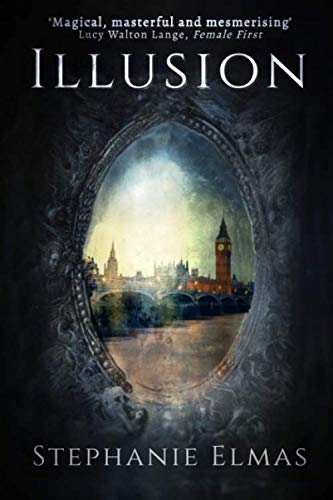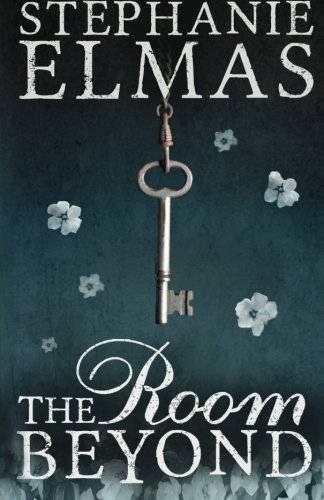THE MAGIC OF DECEPTION
I have a terrible confession to make. I have never read a single novel by Terry Pratchett! That’s like admitting to never having heard of Shakespeare, the Wizard of Oz or Sherlock Holmes, although I would ask you not to rush to judgement. In fairness I spend a lot of time reading other peoples’ books (I am a book reviewer after all), which means I rarely get the chance to choose the novels I want to read. That’s not to say I’ll never get my hands on a copy of Maskerade, The Thief of Time, Snuff or Pratchett’s other works. It will happen, probably sooner rather than later, since Pratchett’s novels (from what I’ve been told), work a special kind of magic on the imagination. I find this rather interesting because magic and its meaning have become a recent preoccupation.
I’m not interested in the ceremonial magic of Aleister Crowley, nor am I a fan of David Copperfield’s larger than life extravaganzas, or the mind delving of Derren Brown. That’s not to say there’s nothing impressive about making the Statue of Liberty disappear, or persuading a member of the public with a chronic fear of flying to emergency land a plane. Call me old fashioned but I like my magic uncomplicated. What’s wrong with pulling rabbits out of hats, shaking doves from silk handkerchiefs, or sawing someone in half and then putting them back together? This was the magic I watched on the TV as a child and maybe one of the reasons why I enjoy it to this day is because there’s still a part of me that wants it to be real. So what if these tricks are nothing more than sleight of hand deceptions? What matters is the enjoyment of watching them. Surely Pratchett was right when he said “it’s still magic, even if you know how it’s done”? Magic teases the possibility the unreal might be real, while the job of literature is to explore the concept. Charles Dickens was a writer who understood that. What most people don’t know is that the author of Great Expectations, The Pickwick Papers, and Oliver Twist was also a first-rate amateur magician whose repertoire included boiling the ingredients of a Christmas pudding in a hat. It’s no coincidence that magic similes and metaphors run through the pages of most of his books, bringing a richness and depth to the story telling. Dickens was fortunate enough to live in an age when the magic shows of country fairs migrated to theatres, making stars out of the likes of Hermann the Great, John Henry Anderson the so-called Wizard of the North, and John Holden, personal magician to Queen Victoria. Theirs was a world of smoke and mirrors make belief for the masses and it has been marvellously reconstructed as the backdrop to Illusion, the excellent second novel of the British author Stephanie Elmas.
Set in nineteenth century London, Illusion revolves around the friendship between Tom Winter, a hard-up piano teacher, and the enigmatic Walter Balenchine. Tall, gangly limbed and with a “skull like face”, Walter is a healer who carries his exotically brewed potions in a tangle of silver lockets hanging from a chain around his neck. He wears outrageously coloured costumes that give him the appearance of a wizard, and he also has an uncanny knack for being in the right place at the right time. When Walter returns to London after three years abroad, he goes into business as a magic performer and brings in Tom as part of the act. Before long they build up a sizeable following and it’s during a private performance that Tom meets and falls in love with the beautiful Tamara Huntington, who is unhappily engaged to ruthless businessman Cecil Hearst. Can Tom and Walter stop the marriage? What is the scandalous secret that Cecil has on Tamara’s family, and how is she connected to Walter?
Although Illusion might seem like a Victorian melodrama, it doesn’t restrict itself to a story line built on the nexus of a vulnerable heroine vs evil villain vs plucky hero. This is a novel that gives subtle vent to its quietly forceful observations about snobbery, mental and physical abuse, the dehumanising impact of illegitimacy, and the moral ugliness of poverty. The London where Tom and Walter live is a dark, cluttered, and unwelcoming place. Children forage “in the grim, littered banks” of the River Thames while houses that almost “touch in the middle” look onto streets teeming with rats and smelling of shit. It is a dirty, claustrophobic environment where danger lurks in every crevice. The opening chapter is a disarming hint of what is to come. When Tom pursues a fish seller who cheats him out of food and money, his path is blocked by “the cast iron chest of a beast masquerading as a man” with a raised fist that resembles “a row of overstuffed sausages.” Violence is also in the home and heart of Cecil Hearst, although psychological abuse is his forte. When he invites Walter and Tom to perform at his London residence, he tries to sabotage their act by handing Walter one of his pistols, insisting he uses it in a trick. It is Walter’s foresight that saves both his life and the day! Daniel, Cecil’s younger brother, is the most disturbing victim of his bullying sibling. He can barely walk and spends much of his time confined to his bedroom, from which he is occasionally released. He is emotionally suffocated by an older brother who has convinced him he will never recover from his sickness, even though Daniel isn’t actually ill. Cecil has never forgiven his brother for an adolescent sexual indiscretion and punishes him with repressive “care”. The truth is that Cecil despises sex, although the novel doesn’t explain whether it’s the act itself or the shock of catching his brother in flagrante that stokes his irrational behaviour. Does it matter that Elmas doesn’t offer an explanation? Personally, I don’t think so because nothing can alter the view that Cecil is twisted. It is Cecil and not Daniel who is the real invalid. He may be the more able-bodied of the brothers but he is crippled by spite and insecurity.
Elmas writes with confidence and tremendous flair. The narrative has a discreet almost metronomic precision, along with deliciously observed moments of humour. A piano lesson with pupil Rosalind Gallop is an ordeal for Tom, who can only wince as the melody she plays reaches a “pinnacle of awfulness”. Elmas also has a wonderful gift for writing sensory descriptions. We can almost feel ourselves being swallowed into the thick, stinking swirl of a London fog, or sucked into the squelchy muddiness of the Somerset levels where the Hearst brothers have a country home. The technique comes full circle during the final, rousing showdown between Cecil and Tom. The build up to the scene reads like a full-on tease constructed with a frame by frame exactness. We never quite know what is going to happen, and although the end is shocking there is still something brutally satisfying in the violence of its conclusion.
Everything about this book works. It entertains with the quality of its writing while dangling the possibility that Walter might or might not be using magic to achieve his objectives. Although some of his tricks are explainable that isn’t necessarily true for all of them. How does he make himself levitate, or conjure a flock of pigeons from a pot of steaming broth? Is there no end to his talents? Walter and Tom are powerful standalone characters but there are others with an equally strong presence, regardless of where they fall in the narrative. There is Kayan, the young stowaway who follows Walter all the way from Calcutta; their friends the Mr. and Misses Cornelius, Madam Pansy the brothel keeper and Sinbad, Walter’s pet black panther. They are such wonderfully drawn figures they could have wandered off the pages of a Dickens novel.
Illusion is a skillfully crafted book by an author who understands the art of telling a good story. It also has a gorgeously observed, multi layered narrative with all the right ingredients for a sequel. Walter Balanchine is far too good a character to let go of and I half suspect that like the Statue of Liberty, he’s bound to make a reappearance sooner rather than later.
Reviewed by Juliette Foster
This article first appeared in Dante Magazine: http://www.dantemag.com
Why not read The Room Beyond, Stephanie Elmas’s first novel?
Hit the link to find out more about author Stephanie Elmas.





